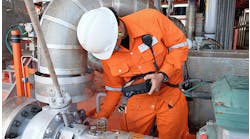Not That University of Wisconsin
Your recent article "City of Oxnard Turns Wastewater Fresh" (Nov. '09, www.controlglobal.com/articles/2009/RAF09_18.html) regarding Rockwell Automation's wastewater conversions was very good. However, I noticed you incorrectly attributed the Great Lakes Water Institute to the University of Wisconsin at Madison, when it is actually based at the University of Wisconsin at Milwaukee, the state's other public research university. See www.glwi.uwm.edu/.
Nicholas Reindl
Quick Peace in Standards Wars
While reading your editorial in the May 2010 edition of Control ("Let's Do One for the End Users," www.controlglobal.com/articles/2010/EndUsers1005.html), I was amazed that you did not mention one of the most obvious solutions to the wireless standards wars.
If the large operating companies were to decide on a standard and informed the vendors of it, the vendors would fall in line, and we would no longer have "standard wars." Allowing the vendors to choose a standard will only result in maneuvering to get advantage in the marketplace to the detriment of the end users.
Back in the 1960s, the same wars were raging between 10-50 mA and 4-20 mA. However, at that time, when engineers rather than accountants were running the majors, 4-20 mA was chosen, and 10-50 mA became nothing but a memory.
name withheld by request
It's Lack of Know-How
The articles, "Oh, No, Not Again!" in May 2010, (www.controlglobal.com/articles/2010/ControlSystems1005.html) and the Control Talk series "Drowning in Data, Starving for Information" (Feb.-May, '10, www.controlglobal.com/articles/2010/DrowningInfo1002.html), plus struggles to quantify the financial value of process control have prompted me to offer a solution.
You are correct: There is a basic problem, and it's not the systems. But, it's not bad management or culture either.
It's know-how—or lack thereof. You were close when you made the common plea for the right information for operator decisions. Now we know what those decisions are, how to make them, the information required, and the financial consequences of either having or not having the right information.
Process plants are operated by adjusting operating conditions: setpoints, specs and limits on controlled variables and KPIs. All that we can do is specify a CV mean and reduce variance. While process control does the latter, there is no standard procedure for the former, so it has to be done by human experience.
Process control and IT suffer from a lack of a rigorous, standard financial performance measure. People don't agree on the purpose and how to keep score—whether a touchdown is worth six points or five points.
The discovery that every CV/KPI has a risky expected-value/profit tradeoff to be optimized provides the process industries with the mathematically rigorous method for setting operating setpoints, specs and limits. Once this is understood and adopted, the thinking is clear. The information needed is tied to standard actions to make money—and the financial value of process control to reduce CV variance is quantified. The premium on modeling the consequences for exceeding specs, breaking limits, noncompliance and unsafe situations is clear and integrated with corresponding CVs.
Pierre R. Latour
Correction
In the "Product Roundup" section of the May '10 issue, the URL for Lumenite Control Technology was wrong. The correct URL is www.lumenite.com. We regret the error.



